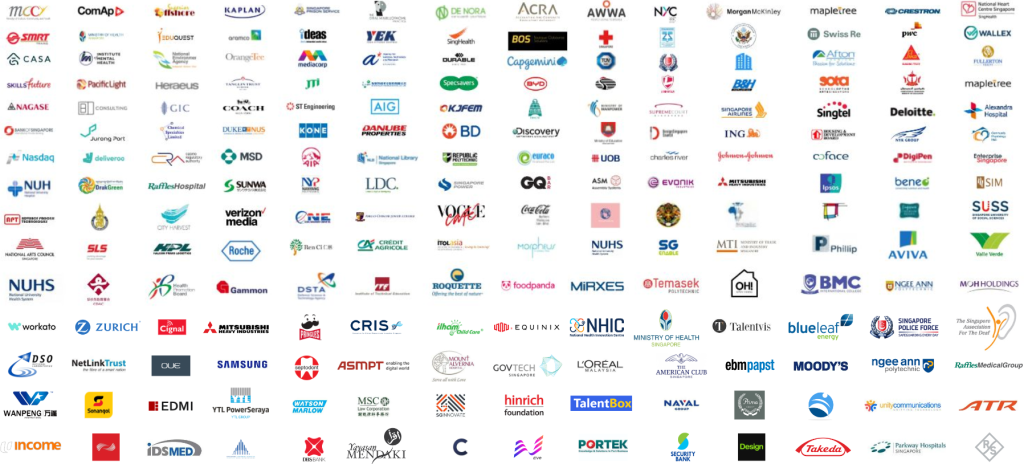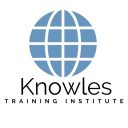Understanding Unconscious Biasness Training Course in Botswana
Our corporate training course is also available in Gaborone (the capital city), Francistown, Molepolole, Serowe, Maun, Kanye, Mahalapye, Lobatse, Mochudi, Palapye, Selibe-Phikwe, Ramotswa, Thamaga, Tonota, Letlhakane, Orapa, Ghanzi, Shakawe, Tlokweng, Jwaneng, Kasane, Ramotswa, Lobatse, Orapa, Sowa, Mogoditshane, Tlokweng, Palapye, Mochudi, Tshabong, Kasane, Maun, Ghanzi, Shakawe, Jwaneng.
 Welcome to a pivotal journey into self-awareness and inclusivity with our “Understanding Unconscious Bias Training Course in Botswana.” Set in the heart of Southern Africa, this course offers participants a unique opportunity to explore the hidden facets of their perceptions and the subtle prejudices that can influence their decisions and actions unnoticed. Designed to cater to a diverse range of professionals, educators, and community leaders, this training aims to illuminate the underlying biases that can pervade our personal and professional environments, promoting a more equitable society.
Welcome to a pivotal journey into self-awareness and inclusivity with our “Understanding Unconscious Bias Training Course in Botswana.” Set in the heart of Southern Africa, this course offers participants a unique opportunity to explore the hidden facets of their perceptions and the subtle prejudices that can influence their decisions and actions unnoticed. Designed to cater to a diverse range of professionals, educators, and community leaders, this training aims to illuminate the underlying biases that can pervade our personal and professional environments, promoting a more equitable society.
In Botswana, a nation celebrated for its rich cultural heritage and progressive outlook, the need for such an enlightening program becomes particularly poignant. As workplaces and communities become increasingly diverse, the ability to navigate and mitigate unconscious biases not only enhances interpersonal relationships but also drives more effective teamwork and innovation. Through a series of interactive workshops, engaging discussions, and reflective activities, participants will uncover the biases that shape their worldview, learning how to counteract their effects to foster a more inclusive atmosphere.
The course structure is meticulously designed to blend theoretical knowledge with practical exercises. Expert facilitators with a deep understanding of both global trends and local nuances lead each session. They provide a safe, open environment where participants can openly discuss and challenge their preconceptions and assumptions. By using real-world scenarios specific to the Botswanan context, the training ensures relevancy and immediate applicability, enabling participants to see the direct impact of what they learn in their everyday lives.
Moreover, the “Understanding Unconscious Bias Training Course in Botswana” is more than just a training program; it’s a transformative experience that equips individuals with the tools to make lasting changes. Participants leave with enhanced self-awareness, improved decision-making skills, and strategies to actively contribute to their organization’s diversity and inclusion goals. They also gain access to a network of like-minded professionals committed to creating a more just and unbiased society.
As we invite you to join us in this enlightening journey, we hope you’ll seize the opportunity to be part of the “Understanding Unconscious Bias Training Course in Botswana,” where we strive to understand and overcome the hidden biases that influence our daily interactions and decisions.
Who Should Attend this Understanding Unconscious Biasness Training Course in Botswana
In the heart of Botswana, where the rhythm of traditional music harmonizes with the beat of modern progress, lies an opportunity for profound introspection—the Understanding Unconscious Biasness Training Course. Picture yourself amidst the vibrant streets of Gaborone, where the fusion of cultures and ideas creates a kaleidoscope of diversity. Against this backdrop, our course invites individuals from all walks of life to embark on a journey of self-discovery, shedding light on the unconscious biases that shape perceptions and influence behaviour.
Designed to foster awareness and understanding, the Understanding Unconscious Biasness Training Course in Botswana offers a transformative experience for participants. Whether you’re a business leader striving to cultivate an inclusive workplace culture, an educator committed to promoting diversity in the classroom, or a community advocate seeking to address systemic biases, this course provides essential tools and insights. Through interactive workshops, enlightening discussions, and practical exercises, attendees will explore the nuances of unconscious bias and its impact on personal interactions, professional decisions, and societal structures.
As the sun sets over the breathtaking landscapes of Botswana, participants of the Understanding Unconscious Biasness Training Course emerge enlightened and empowered. With a newfound awareness of unconscious bias and a commitment to fostering inclusivity, they are poised to effect positive change in their communities and beyond. Understanding Unconscious Biasness Training Course in Botswana—it’s not just about acknowledging biases; it’s about taking proactive steps towards a more equitable and empathetic world.
- Corporate Executives
- Human Resources Professionals
- Educators
- Diversity and Inclusion Officers
- Community Leaders
- Social Workers
- Government Officials
- Non-profit Organisations
- Healthcare Providers
- Law Enforcement Officers
Course Duration for Understanding Unconscious Biasness Training Course in Botswana
Join us for the Understanding Unconscious Biasness Training Course in Botswana, where we offer flexible durations to accommodate your schedule and learning preferences. Whether you opt for an immersive experience spanning three full days, a comprehensive overview condensed into a single day, or a concise yet impactful session lasting just 90 minutes or even 60 minutes, our course ensures accessibility without compromising depth of understanding. Embark on this enlightening journey with us and unravel the complexities of unconscious bias in a format that suits you best.
- 2 Full Days
- 9 a.m to 5 p.m
Course Benefits of Understanding Unconscious Biasness Training Course in Botswana
Immerse yourself in the Understanding Unconscious Biasness Training Course in Botswana, where you’ll gain invaluable insights to foster empathy, promote inclusivity, and drive positive change in your personal and professional life.
- Increase awareness of personal biases and their impact on decision-making.
- Foster empathy and understanding towards individuals from diverse backgrounds.
- Enhance communication and collaboration in multicultural settings.
- Promote a more inclusive and equitable workplace or community environment.
- Improve decision-making processes by mitigating the influence of unconscious biases.
- Strengthen relationships and build trust through authentic connections.
- Reduce the risk of unintentional discrimination or exclusion.
- Enhance leadership skills by promoting diversity and inclusion initiatives.
- Create a more harmonious and respectful organisational culture.
- Drive positive social change by challenging systemic biases and advocating for equality.
Course Objectives for Understanding Unconscious Biasness Training Course in Botswana
Embark on the Understanding Unconscious Biasness Training Course in Botswana, where the objectives are to equip participants with the knowledge and skills to recognise, address, and mitigate unconscious biases in various contexts. Through interactive sessions and practical exercises, this course aims to empower individuals to foster inclusive environments and promote equity and diversity.
- Understand the concept of unconscious bias and its prevalence in society.
- Recognise common types of unconscious biases and their manifestations.
- Identify personal biases and their potential impact on decision-making.
- Develop strategies to mitigate the influence of unconscious biases in everyday interactions.
- Foster empathy and understanding towards individuals from diverse backgrounds.
- Enhance communication skills to promote inclusivity and reduce bias in language.
- Implement practices to create inclusive environments in workplaces and communities.
- Analyse case studies and real-world examples of unconscious bias in action.
- Collaborate with others to address bias and promote diversity initiatives.
- Advocate for systemic changes to mitigate the effects of unconscious bias.
- Monitor progress and evaluate the effectiveness of bias reduction strategies.
- Commit to lifelong learning and continuous improvement in addressing unconscious bias.
Course Content for Understanding Unconscious Biasness Training Course in Botswana
Explore the depths of unconscious bias and its impact on decision-making in the Understanding Unconscious Biasness Training Course in Botswana. Through engaging lectures and interactive activities, participants will delve into various types of biases, understand their implications, and learn practical strategies to mitigate their effects.
- Understand the concept of unconscious bias:
- Definition and significance of unconscious bias.
- Psychological mechanisms behind unconscious bias.
- Effects of unconscious bias on individual and group behaviour.
- Recognise common types of unconscious biases:
- Stereotyping based on race, gender, or other characteristics.
- Confirmation bias and its role in reinforcing existing beliefs.
- Halo effect and its influence on perceptions of individuals.
- Identify personal biases and their impact on decision-making:
- Reflecting on personal experiences and beliefs that may influence biases.
- Understanding how biases can affect judgements and interactions with others.
- Assessing the consequences of unconscious bias in professional and personal contexts.
- Develop strategies to mitigate the influence of unconscious biases:
- Mindfulness techniques to increase awareness of biased thoughts and behaviours.
- Implementing decision-making processes that reduce bias, such as blind evaluations.
- Creating accountability mechanisms to challenge biased assumptions and decisions.
- Foster empathy and understanding towards individuals from diverse backgrounds:
- Building cultural competence through exposure to diverse perspectives.
- Practising active listening and empathy to connect with others’ experiences.
- Engaging in perspective-taking exercises to understand different viewpoints.
- Enhance communication skills to promote inclusivity and reduce bias in language:
- Using inclusive language that respects diverse identities and experiences.
- Addressing microaggressions and unconscious biases in communication.
- Facilitating open and respectful dialogue in multicultural settings.
- Implement practices to create inclusive environments in workplaces and communities:
- Developing diversity and inclusion policies and initiatives.
- Promoting diversity in hiring and talent management practices.
- Establishing inclusive norms and practices that value diversity and equity.
- Analyse case studies and real-world examples of unconscious bias in action:
- Examining incidents of bias in various contexts, such as hiring, education, and healthcare.
- Discussing the impacts of bias on individuals and communities.
- Identifying opportunities for intervention and prevention of bias-related issues.
- Collaborate with others to address bias and promote diversity initiatives:
- Building partnerships with stakeholders to advance diversity and inclusion goals.
- Engaging in allyship and advocacy for underrepresented groups.
- Participating in community initiatives and events that promote diversity awareness.
- Advocate for systemic changes to mitigate the effects of unconscious bias:
- Working towards policy reforms that address systemic inequities and biases.
- Supporting initiatives that promote diversity and inclusion in institutions and organisations.
- Amplifying marginalized voices and advocating for structural changes to create more equitable systems.
- Monitor progress and evaluate the effectiveness of bias reduction strategies:
- Establishing metrics and benchmarks to track progress in addressing unconscious bias.
- Collecting feedback from stakeholders to assess the impact of diversity and inclusion efforts.
- Iterating and refining strategies based on data and insights gathered through evaluation.
- Commit to lifelong learning and continuous improvement in addressing unconscious bias:
- Engaging in ongoing education and training on diversity, equity, and inclusion.
- Seeking out opportunities for self-reflection and growth in addressing personal biases.
- Actively participating in communities and networks dedicated to promoting diversity and challenging bias
Course Fees for Understanding Unconscious Biasness Training Course in Botswana
Join us for the Understanding Unconscious Biasness Training Course in Botswana, where we offer flexible pricing options tailored to meet your budget and needs. With four distinct packages available, participants can choose the option that aligns best with their preferences, ensuring accessibility to this invaluable learning experience. Invest in your personal and professional growth by enrolling in our comprehensive training course today.
- USD 679.97 For a 60-minute Lunch Talk Session.
- USD 289.97 For a Half Day Course Per Participant.
- USD 439.97 For a 1 Day Course Per Participant.
- USD 589.97 For a 2 Day Course Per Participant.
- Discounts available for more than 2 participants.
Upcoming Course and Course Brochure Download for Understanding Unconscious Biasness Training Course in Botswana
Stay informed about the latest developments and avail our informative brochures for the upcoming Understanding Unconscious Biasness Training Course in Botswana. Whether you’re seeking detailed course outlines, testimonials from past participants, or information on upcoming sessions, our brochures will provide all the details you need to embark on this enlightening journey. Don’t miss out on this opportunity to deepen your understanding of unconscious bias and contribute to positive change in your community.

The Best Corporate Training Courses in Botswana, Corporate Training Courses in Botswana
